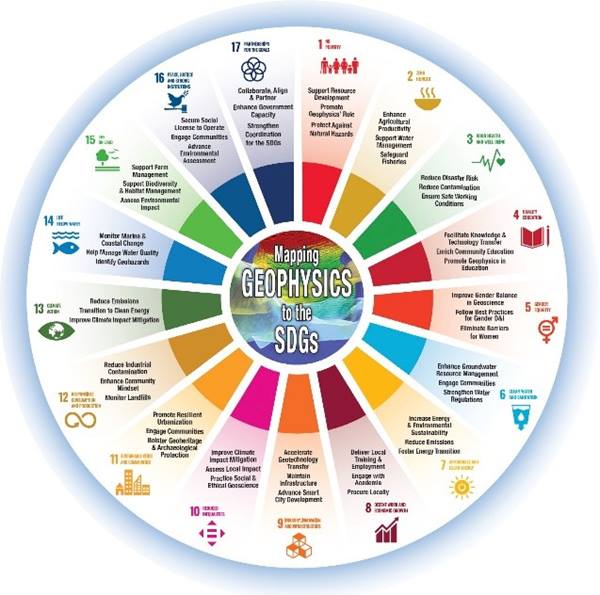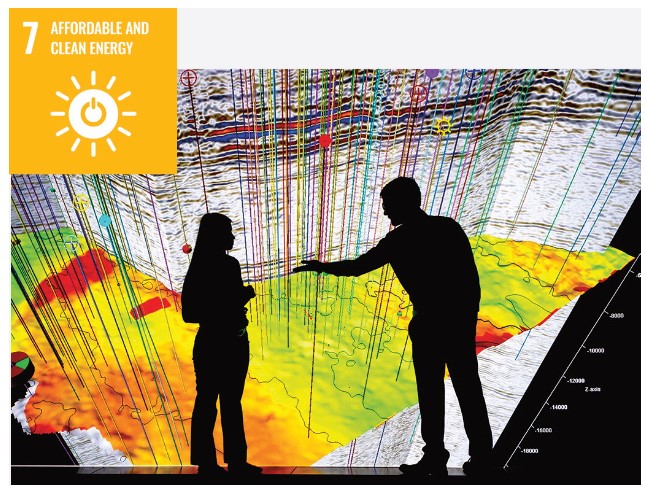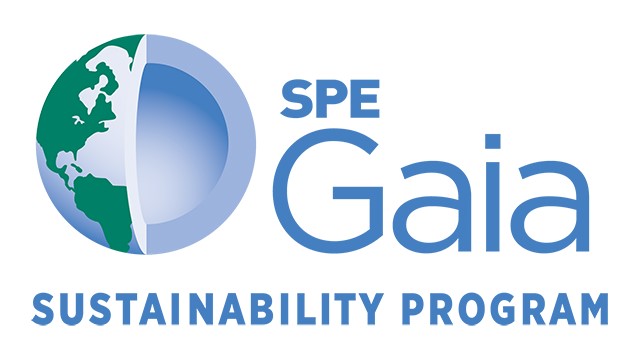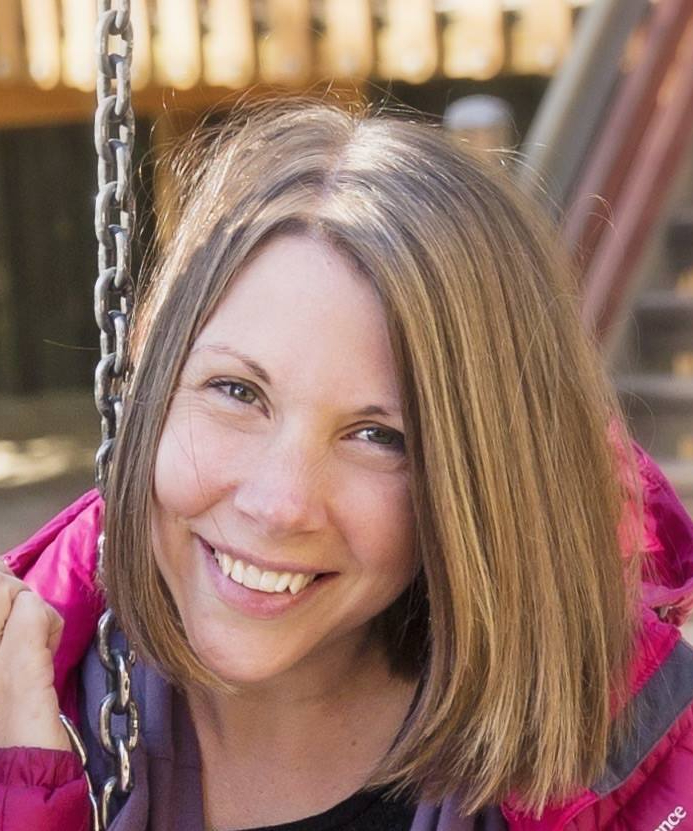The Evolving Role of the Geoscientist for a Sustainable Future
For as far back as I can remember I have been passionate about social and environmental sustainability and the possibilities to advance this agenda within our sector. Three small children, an offshore husband and a full-time job didn’t lend me much time on the side, so I took the decision 18 months ago to step back from my 16-year career as a reservoir geoscientist to upskill in this area. I investigated what the industry is doing and what’s happening outside to get a more holistic picture to inform how we can accelerate our efforts to address today’s urgent sustainability challenges and how I might pivot to devote my skills and experience in this new direction.
I immersed myself in all things related to energy, climate action and sustainability more broadly; growing my network both within and outside the petroleum sector, attending live and virtual conferences and becoming an active volunteer with the industry’s professional societies—curating panel sessions and conference programming. This gave me the opportunity to broaden and deepen not just my technical but my social and political knowledge on these topics, gaining perspectives from across the energy debate spectrum—climate scientists, politicians and activists from both outside and within the industry..
Sustainable Geoscience
Pre-pandemic I attended three geoscience conferences in just one quarter in my home country, Ireland. It was a sign of the times that each of them had the climate crisis core to their programming - highlighting the urgency and showcasing action geoscientists in various sectors are taking to address and mitigate the impacts of climate change. In parallel I became aware of the concern around the sharp decline of students enrolling for geoscience courses in universities across the globe. Justifiably or not, there is a clear narrative that the oil and gas industry is responsible for the negative perception of the discipline. Substantial efforts are being made to reboot the subject to demonstrate the important role geoscientists play in society to ensure the security of its future. Unfortunately, from what I have observed, Petroleum Geoscience tends to be left out of the discourse.
This prompted me to co-author a paper with SEG board members mapping the discipline of geophysics to the United Nations Sustainable Development Goals (UN SDGs). The SDGs are 17 goals established by the UNDP in 2015 aimed at addressing the most urgent social, economic and environmental challenges our world faces. The UN SDGs represent the world’s shared framework on sustainability – they are the blueprint and the best guideline available to advance sustainable development and achieve the goals by 2030.
This Geophysical Sustainability Atlas investigates how broadly geophysics can be applied to address all 17 of the UN SDGs from Disaster Risk Response (DRR) from climate and geohazards, water resource management, near surface techniques in the construction of sustainable and resilient cities, the provision of all energy forms and decarbonisation techniques through to more communicative roles in social governance, climate action, advocacy and policy influence. The goals are interconnected so augmented collaboration between geoscientists going forward is key to their success. The hope is that the Atlas will inspire current geoscientists and communicate to prospective students and indeed society at large the contribution our unique discipline makes and the potential it has to advance sustainable development in multiple sectors.
Sustainable Petroleum Geoscience
UN SDG 7: Action to ensure access to affordable, reliable, sustainable and modern energy for all is often regarded as the most influential of all the SDGs having a major impact on whether we meet the rest of the Goals. Earlier this year, Amina Mohammed, the UN Deputy Secretary General in her address to the IEA cautioned that we are currently not on track to achieving SDG 7 or limiting global temperature to 2°C above pre-industrial levels. She stated that society has ‘picked a fight with nature’ and that the energy transition can act as an ‘olive branch’ to enable us to achieve SDG 7.

This presents a significant opportunity for our sector and indeed our discipline as Petroleum Geoscientists to be a central part of the solution. The Atlas details the pivotal role played by geoscientists in all energy and decarbonization strategies to ensure energy security, equity, and environmental sustainability. It points out the need to extend and repurpose these skills and technologies to advance today’s energy transition efforts from the characterisation of geothermal energy sources to sustainable mineral extraction to supply the demand for renewable technology through to tackling GHG emissions from hydrocarbons with CO2 storage monitoring and methane detection and mapping.
How can the individual contribute...?
Last October as a panellist on the SEG20 Sustainability Panel (key Takeaways), I was asked to share an insight from my year. I believe the challenges our planet and society face are so great and so urgent that a collective, multi-pronged approach is required. Sustainability is not something that should be niche or exclusively top-down and the sole responsibility of CEOs and ESG teams because the reality is, many of these objectives don’t always filter down to everyone. We are all accountable and all capable of action. As scientists we are problem solvers, solutions driven. As geoscientists, and by extension all subsurface practitioners, we are the custodians of mother earth with the expertise and tools to unlock the subsurface so we should be at the vanguard of more sustainable solutions.
18 months ago, I believed my move would be a departure from geoscience but I now have a better understanding of the crucial role we need to play to bend that emissions curve.
Time to collaborate and aggregate our efforts...
We as industry individuals are critical to the social and environmental performance of our industry yet most of us do not have direct responsibility for it. This has been a personal frustration for me and what lead me to take Personal Development Leave.

I was fortunate this year to get involved with the SPE Gaia program – a collaboration between professional societies and overarching industry bodies IPIECA, International Oil and Gas Producers Association (IOGP), and the Oil and Gas Climate Initiative (OGCI), which is founded on this exact premise; providing a framework for industry professionals to channel their skills, aspirations and innovations working to ensure the oil and gas industry is on the right side of history with respect to its social and environmental performance.
‘The SPE Gaia Sustainability Program, created by our HSE and Sustainability technical discipline, aims to enable all individuals in the oil and gas industry to act in the service of sustainable socio-economic development through their professional societies—empowering those at all levels within organizations to create actions to address the planet’s sustainability challenges.’
SPE Gaia provides professionals like me with the opportunity to work with some of the most experienced sustainability professionals across and outside the sector in a non-hierarchical way enabling synergies between top-down initiatives and on-the-ground brainpower.
Here is one example of Gaia in action:
The Intergovernmental Panel on Climate Change (IPCC) have cited Carbon Capture and Storage technology as crucial in almost all scenarios to mitigate climate change yet progress in this area is too slow and we are way below the target of 16 per cent of annual emissions reduction by 2050. SPE Gaia has been collaborating with a range of expert stakeholders from within and outside the industry to collectively assess how to overcome these barriers by means of expert engagement workshops. Findings have then been used to curate comprehensive international climate workshops for the industry and public encompassing the entire CCS value chain from storage assessment and monitoring through to regulation, commercialisation and stakeholder engagement. The debate on this topic in the UK last month reinforces the need for us as subsurface practitioners to champion this technology and engage better with society in order to progress CCS targets.
This accelerated level of mobilisation of industry professionals, external collaboration and aggregation of efforts is crucial in aligning sustainability efforts within the sector with the scale and the urgency of the challenges that need to be addressed if human activity is to be returned within planetary boundaries.
All IEA scenarios show oil and gas continuing to be a part of the global energy mix in the future and we should be proud of the role it has played for energy equity and socio-economic development around the globe. We need however to be cognisant of the damaging impact this resource has on our environment and act accordingly. Changes are happening in the sector; the shift towards green energy policies, oil and gas companies becoming energy companies, shareholders prioritising environmental standards and students and young professionals embracing a broader energy mix. Our industry is evolving, for the better and I believe it needs to enable its workforce to act on the single biggest environmental challenge that is facing society and our planet so that we can indeed be part of the solution.
Useful Links
- IEA World Energy Outlook https://www.iea.org/topics/world-energy-outlook
- The global oil and gas industry association for advancing environmental and social performance (IPIECA) https://www.ipieca.org/
- Oil and Gas Climate Initiative https://oilandgasclimateinitiative.com/
- SPE Gaia Sustainability Programhttps://www.spe.org/en/gaia/
- Global Carbon Capture and Storage Institute https://www.globalccsinstitute.com/
- The UN Sustainable Development Goals https://sdgs.un.org/goals
- UNESCO Earth Science https://www.unesco.org/en/tags/earth-sciences
- Fossil Fuels and Sustainable Development https://www.un.org/en/chronicle/article/role-fossil-fuels-sustainable-energy-system
- The Earth Project https://theearthproject.world/
- Geoscientists Without Borders https://seg.org/about-seg/geoscientists-without-borders
- Geology for Global Development https://www.gfgd.org/
- Geoscience and Society http://geologize.org/
- International Association for Promoting Geoethics https://www.geoethics.org/
- International Geoscience and Geoparks programme: https://www.unesco.org/en/iggp
Author information: Emer Caslin is a Geoscientist specialising in reservoir interpretation, structural and property modelling. She has held roles in technical consulting, business development and Petrel Portfolio Management; ranging from daily technical operation support to advising on corporate-level geoscience strategy. She graduated with a BSc in Geology from Queens University Belfast and an MSc in Reservoir Geoscience and Engineering from the IFP School in Paris. She is passionate about accelerating the industry’s contribution to sustainable development.

